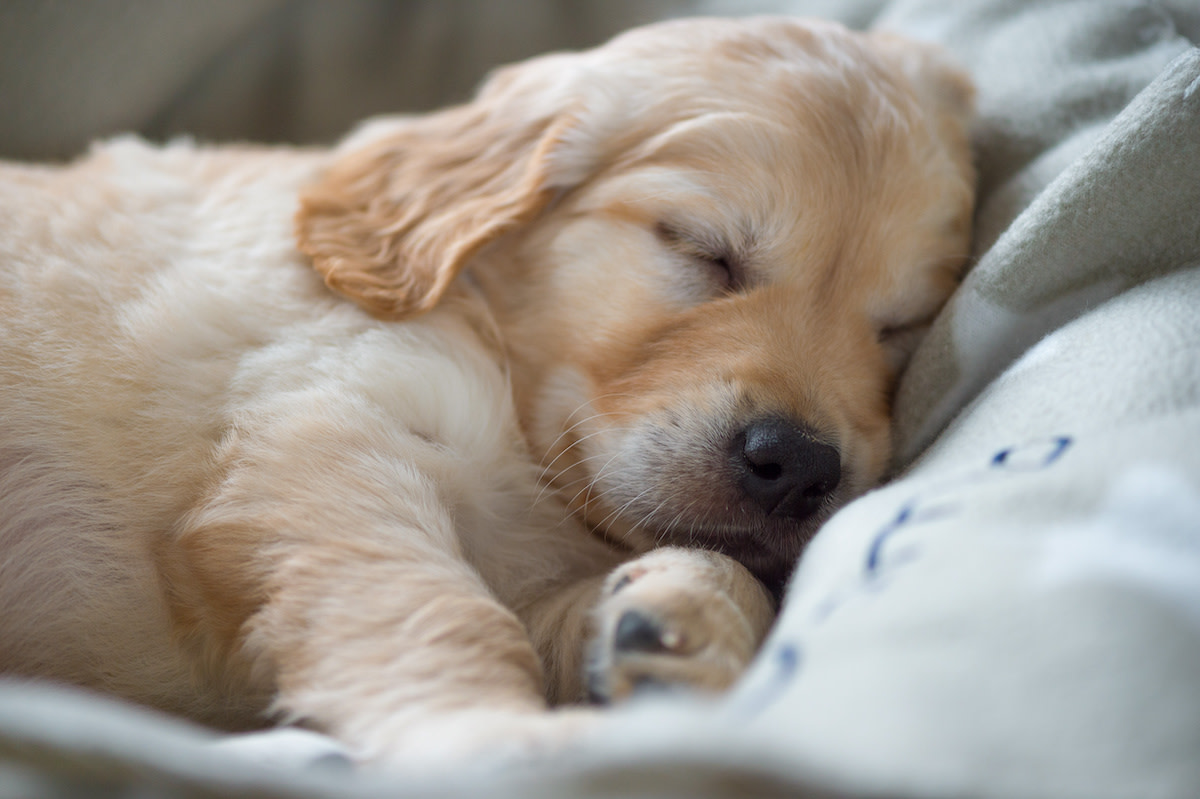Puppy Stages: What to Expect in Each Development Stage
Written by MasterClass
Last updated: Dec 15, 2021 • 3 min read
Welcoming a puppy into your home is an exciting step. Learn about the different stages of puppy development, so you know what to expect and understand how to best care for your new furry friend.
Learn From the Best
What Are the Developmental Stages for Puppies?
Puppyhood is a time in a dog’s life that lasts from birth until two years of age. Within these two years, most dog professionals identify five different developmental stages.
- 1. Neonatal: The neonatal stage is the first stage of a puppy’s life, and it lasts from birth until two weeks of age. Puppies are born with their ears and eyes shut and won’t develop their senses until the transitional period. Puppies are entirely dependent on their mothers during the neonatal period.
- 2. Transitional: This stage begins when a puppy starts to open their eyes and ears, around two weeks of age, and lasts until they startle when hearing a sound, about two weeks after opening their ears. During this time, puppies begin to develop their senses of sight and hearing and become slightly more independent from their mother.
- 3. Socialization: The critical socialization stage begins around three weeks of age and ends around twelve weeks. Puppies can hear at this stage and may start to eat liquids and eliminate them independently, with frequent help from their mother. Puppies may be sensitive to fearful events around eight to ten weeks of age (the “fear period”). Learn how to socialize your young dog.
- 4. Pre-adolescence: Puppies are in the pre-adolescent stage from three to six months of age. During this time, puppies start to develop their adult teeth and become more independent.
- 5. Adolescence: Adolescence begins when a puppy is six months of age and lasts until about eighteen months. It is the last development stage before a puppy becomes an adult dog.
What to Expect During Each Stage of Puppy Development
Understanding the critical aspects of each puppy development stage will help you prepare and best care for your puppy’s needs as they grow.
- Sleeping during the neonatal stage. Neonatal puppies are dependent on their mothers, relying on them for everything from food to help with elimination. While puppies have their sense of taste and touch, they can’t see, hear, or smell yet. During this stage, puppies spend most of their time sleeping and feeding from their mothers.
- Senses develop in the transitional stage. The transitional stage is an important developmental time for puppies because it’s when their senses of sight, hearing, and smell develop. During these next two weeks, puppies may start to bark, wag their tails, and explore their surroundings, but they are still highly dependent on their mother. Puppies also start teething as their sharp teeth emerge. You can begin weaning puppies from their mother and feeding them solid puppy food during this time. Puppies can also control their bladders and bowel movements without help from their mother around this time; however, it’s too soon to begin potty training.
- Heightened senses during socialization. The socialization stage involves a series of rapid changes. Puppies bark and growl more as they start to play with their littermates and learn group dynamics. Many puppies leave their mother and littermates for a new home around eight weeks of age. During the first half of this development stage, a puppy has a high fear threshold; however, they become fearful of new experiences after a few weeks. During the socialization period, puppies can make positive—or negative—associations with people, objects, and experiences. It’s essential to introduce your puppy to as many new stimuli as possible during this time while shielding them from anything that may be scary or stressful. Since puppies usually get their vaccinations during socialization, try to make their first vet visits as enjoyable as possible.
- Teething in pre-adolescence: During this time, puppies continue teething as their baby teeth start to fall out and adult teeth start to come in. Providing your puppy with soothing chew toys may help ease teething pain, while management strategies like a puppy pen or tether may prevent them from chewing on and nipping family members. Around six months, many puppies will experience another fear period, so continue to help your puppy build positive associations with novel experiences.
- Assistance in adolescence: Adolescent puppies still need lots of help from their caregivers. They may seem rambunctious, but they also need plenty of rest—up to twenty hours a day. Large breed dogs may exhibit puppy behaviors like nipping for up to three years, while small breed dogs may grow out of puppyhood around eighteen months.
Want to Learn More About Training the Goodest Boy or Girl?
Your dream of having a dog who understands words like “sit,” “stay,” “down,” and—crucially— “no” is just a MasterClass Annual Membership away. The only things you’ll need to train up a well-behaved pup are your laptop, a big bag of treats, and our exclusive instructional videos from superstar animal trainer Brandon McMillan.
